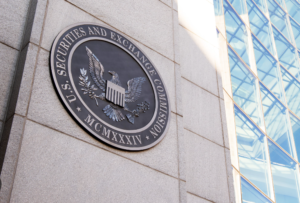$SPX $BTC $TSLA
#USElection #markets #stocks #crypto #inflation #interestrates #USD #equities #bonds #investing #S&P500 #trading
How will the US election affect markets? This is a key question facing investors as they look ahead towards the upcoming election cycle. Elections tend to create volatility, especially as competing parties campaign with different economic policies, tax proposals, and regulatory measures. In the US, one of the major concerns for markets is how shifts in government leadership could change fiscal policies, impacting both corporate taxes and federal spending. Corporate profits and valuation are highly linked to the tax environment, and changes could directly influence the prices of major indices such as the S&P 500 ($SPX). Depending on election outcomes, sectors such as technology, energy, and defense could see different levels of support or regulatory pressure.
Beyond stock markets, election cycles also impact currency and commodity markets. Historically, the US dollar ($USD) faces pressure in the lead-up to national polls, as higher uncertainty tends to lead investors to foreign exchange hedges or haven assets like gold. Meanwhile, bond markets could also be volatile, as changes in fiscal direction influence inflation expectations and interest rate policy. If post-election, government spending ramps up, it might prompt the Federal Reserve to tighten monetary policy earlier than anticipated. Alternatively, a more conservative spending agenda coming into power could ease pressure on inflation, potentially driving interest rates down. This could benefit both bond prices and interest-rate-sensitive sectors such as real estate and utilities.
In the world of crypto, the US election could also have significant ramifications. Regulatory scrutiny has been tightening as governments worldwide look to clamp down on issues ranging from tax evasion to financial crime via digital assets. The outcome of regulatory policy, especially in the US, where the future regulatory framework for cryptocurrencies such as $BTC is still in flux, will be closely monitored. A more stringent regulatory environment could dampen investor enthusiasm for cryptocurrencies. However, clearer rules could also provide more certainty, leading to confidence—and potentially more mainstream investors—entering the space. Regardless of the immediate impact, the broader question remains whether elections will impact public confidence in decentralized networks as a counter to government-led power.
Ultimately, volatility in asset classes such as equities, fixed-income instruments, and cryptocurrencies can be expected depending on how the election plays out. Investors in $SPX and other major markets will focus intensely on evolving economic policies, tax reform agendas, and the US stance on both monetary policy and international trade. Furthermore, sectors tied directly to governmental policies, such as renewable energy, pharmaceuticals, and healthcare, will also be in the spotlight. Analysts will also be following how markets digest political uncertainty in a macroeconomic landscape that has already been shaped by rising interest rates, inflation, and corporate earnings pressures. The curve of the investment landscape will likely be determined by how well candidates’ policy proposals align with investor expectations for economic growth and corporate profitability.











Comments are closed.